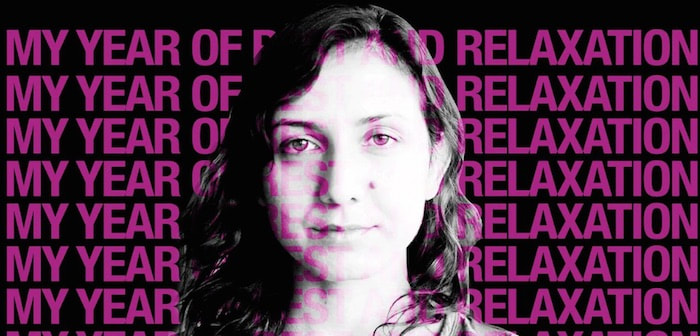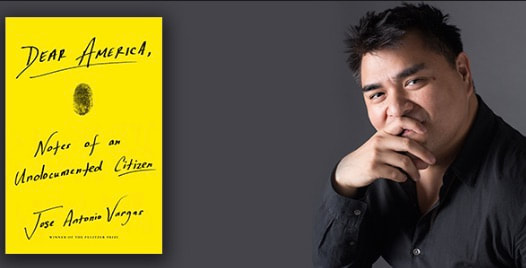|
Photo Credit- Studio 24 A Refreshing New Take on Sibling Rivalry
If the title of this gem of a book doesn’t draw you in, the first chapter made up of two sentences will. “My Sister the Serial Killer” by Nigerian author Oyinkan Braithwaite (pictured above) is a delicious and disturbing novel that takes place in Nigeria and is comprised of what will become one of modern fiction’s most quirky characters - Ayoola- younger sister to narrator Korede. Ayoola is the favored daughter, simple, unambitious, spoiled and beguiling. Her beauty is mesmerizing, with men constantly falling under her spell. The impact of her allure is not lost on her and she takes full advantage when the situation warrants. Despite this, she is not without her flaws, least of which is the nasty habit of killing men she dates, for one reason or another. There, literally to cover up the mess is big sis Korede, who undeniably has a love-hate relationship with her sibling, painfully aware of their striking differences. Everything Ayoola is, Korede is not. She is plain, not stunning; smart, hardworking and kind. Although she loves her sister and is protective, she is also irritated by her obtuse demeanor and narcissism. She tries desperately to keep Ayoola her from her work at the hospital of which she is a managing nurse. She has a crush on her doctor-boss, but does not have the confidence to seriously pursue. The last thing she wants or needs is baby sis to come into her work world, diminishing her chances with Dr. Tade who she knows would fall under her spell, like every other man. “I can’t pinpoint the exact moment I realized that Ayoola was beautiful and I was ... not. But what I do know is that I was aware of my own inadequacies long before. Rumor has it that she was asked out on her first day by a boy in SS2. It was unprecedented. She said no. but I received the message loud and clear.” Both in their 20s and still single, they live with their mother who is blissfully unaware of her youngest daughter’s disturbing ways. To her, Ayoola is desirable prize she gave birth to. She sees her as destined to, if not greatness, a great marriage, showered in wealth and appreciated for her attractiveness. In many ways, Korede seems to be more of a mother than her mother. She is the most aware and sane of the family. A role she seemed to embrace even before her father’s “untimely,” yet not necessarily unwanted death. He was a cheating husband and an abusive father, which may or may not have led to Ayoola’s deadly ways, and the dysfunctional threesome that the family has become. Since Ayoola’s murderous ways seemingly impact Korede more deeply, to what extent can Korede believe these killings are justified and far will her loyalty go? Likewise, can Ayoola trust her big sister completely and forever? The only person Korede can confide in and unburden herself of guilt is to a comatose patient, Muhtar. “Femi makes three, you know. Three and they label you a serial killer.” I whisper the words in case anyone were to pass Muhtar’s door. In case my words are to float through the two inches of wood and tickle the ears of a passerby. Aside from confiding n a comatose man, I take no risks. “Three,’ I repeat to myself.” Last night I couldn’t sleep, so I syopped counting backward and sat at my desk, turning on my laptop. I found myself typing serial killer into the Google search box at 3 a.m. There it was: three or more murders ... serial killer. “My Sister the Serial Killer” although well-written and captivating, is not lyrical and high literary fiction, but it is a smart, fun dark comedy. It succeeds in its conciseness and decorum. It’s not overreaching and it’s not trying to be anything other than what it is, taunting and daring the reader every step of the way. Wrapping up at just a bit over 200 pages, each chapter is short and intoxicating, like taking a tequila shot and making for a quick entertaining read. This refreshingly inventive, can’t-put-down novel is crying out to be the next binge-worthy mini series on a streaming outlet nearby. You heard it here first.
0 Comments
Photo from theLily.com A Year Under the Influence of Drugs and Sleep
Craving alternative literature, an unconventional heroin and a downright weird premise? “My Year of Rest and Relaxation” by award winning writer Ottessa Moshfegh (pictured above)is just what the literary doctor ordered ... And when you read this bodacious new novel, you’ll appreciate the aforementioned cliche. This weird and trippy novel, set in 2000 through 2001, is about a young, pretty Columbia University grad who after the death of her parents, breakup with her boyfriend, and dismissal from her job, is overcome with depression and lifelessness. She decides to drop out of life for a year through overmedication (prescription) and hibernation in her Upper Eastside apartment in New York. Of course, her inheritance affords her the opportunity to retire, so to speak, and retreat into seclusion. She is convinced that if she can just get enough sleep, she’ll awakened renewed and invigorated, back to tackle life in more traditional ways. For the first six months, she is mostly dedicated to her personal cause and case study, only advancing from her cocoon for her monthly pharmacologist appointment, and sustenance, which consists of cola, coffee, tuna salad and animal cracker. In between such outings, she is occasionally and reluctantly rustled out of slumber by her one “friend,” Reva, who for the most part does not even notice that her friend has checked out. Reva herself is a depressed character who parties hard and perpetuates an ill-fated affair with her married boss. She insists entry into our heroine’s apartment after drug induced nights of hard partying and a need for company while she wallows in her sorrows. Out of frustration and pity, she is allowed in and forced to sit silently why the narrator re-watches a favorite old movie before giving Reva the boot and passing out. Despite Reva’s efforts for bonding, the narrator only becomes more resolute in limiting outside intrusion. “I heard my cell phone ring but I didn’t answer it. ‘Happy birthday,’ Reva said in her message. ‘I love you.’ As summer dwindled, my sleep got thin and empty, like a room with white walls and tepid air-conditioning. If I dreamt at all, I dreamt that I was lying in bed. It felt superficial, even boring at times. I’d take a few extra Risperdal and Ambien when I got antsy, thinking about my past. I tried not to think of Trevor. I deleted Reva’s messages without listening to them. I watched Air Force One twelve times on mute. I tried to put everything out of my mind. Valium helped. Ativan helped. Chewable melatonin and Benadryl and NyQuil and Lunesta and temazepam helped. My visit to Dr. Tuttle in September was also banal.” The following six months, finds the narrator more committed to her experiment, refusing to be distracted and enlisting the help of a former work associate who has a personal stake in a successful outcome. The book is mostly made of these hallucinatory sort of narrations and ruminations, which will either entice some readers within the first two chapters, or turn them off. This is an unsettling and unsympathetic character, and even stranger story, with not much going on but a clearly depressed person desperate to withdraw. Yet there is something intriguing about it all. The rare glimpses of humanity and vulnerability from the narrator are gems that perpetuate you to the next few chapters of her banal existence. And then there’s the final three chapter as she reaches the finish line, emerging from experimental year slumber and self induced alienation, creepy towards 9-11. Like the narrator, you feel as if awakening and a reluctant embrace of life such as it is, a glimmer of hope. Unfortunately, these chapters are short and thin. Although successful in leaving you wanting for more, you can’t help but wonder if the 273 pages prior were worth the brief pay off at story’s end. That being said, I didn’t think I’d finish the book, let alone find myself intrigued and appreciating it on several levels. Although I think it might have been better suited as a novella, it is undeniably unique. In addition to being considered literary fiction, one could be tempted to label this novel as black comedy, but in actuality it defies categorization and genre. Moshfegh has carved out her own niche and she does not suffer critics of her writing and characters lightly. You either get it or you don’t; hate it or love it, but you should try it on for size. My Year of Rest and Relaxation is writer Ottessa Moshfegh’s follow up to her award winning novel Eileen and her novella McGlue. How the Most Famous Undocumented Immigrant Makes America Home
There are those all too rare occasions when reading a memoir is as inspiring, educational and imperative as it is entertaining and informative. Such is the case with “Dear America: Notes of an Undocumented Citizen” by journalist and immigrant activist Jose Antoni Vargas. Like much literature now, mostly fiction, Vargas is responding to the current political climate in which some bad actors are waging war on humanity, with little or no regard for contributing members of our society. Some of this is done out of politics as theater, but most of it is out of a lack of empathy and sheer ignorance. Vargas, who was born in the Philippines, came to America when he was twelve to live with his maternal grandparents and assuming all was normal and legit about his arrival to and status in the U.S. It wasn’t until several years later when he applied for a driver’s license, that he was informed that his papers were fake and he was an “illegal.” Thus began many, many years of struggling, in one way or another, with his status; of feeling like he had to hide who he was, misrepresenting documents and himself, personally and professionally. He was forced to learn at a young age what it is to be the other in America; to be other and living a lie. Those feelings followed him through high school, college and into a successful journalism career in San Francisco, New York and D.C. “For more than a decade, I carried the weigh of trying to succeed in my profession - I need that byline, I need that story, I need to be seen - while wanting to be invisible so I didn’t draw too much attention to myself ... There comes a moment in each of our lives when we must confront the central truth in order for life to go on. For my life to go on, I had to get at the truth about where I came from. On that August afternoon, working on the biggest assignment of my life, I realized that I could no longer live with the easy answer. I could no longer live with my lies. To free myself - in fact, to face myself - I had to write my story.” There is no easy way for him, and others in a similar scenario, to just change his status. There is no document to sign, no class to register for, no wand to wave. He is in limbo as far as DACA is concerned - being one or two years too old to qualify as a Dreamer. It was his internal and external struggles that ultimately emboldened Vargas to out himself as undocumented, sympathize with others in similar situation and take up their cause to be understood. Although he “freed himself up” through truth, it did not make his situation necessarily easier. He became a target, and still is. He has to be mindful of where he travels and cannot stay in one residence for too long. He fears for his deportation and the risk to his family. Making matters worse, he has not seen his mother since he left the Philippines. He can’t go there without risking never returning to America, and his mother cannot come to him. But what freedom he has experienced through truth, he continues to embrace and use for the common good of others. Vargas makes it clear early on in “Dear America” that it is not a book about the politics of immigration, but rather “a book about homelessness in the unsettled, unmoored psychological state that undocumented immigrants find themselves in.” It is a book about lies and truth, and feeling like you have to pass as something else in order to maintain. Beyond all that, “Dear America” is as much about the kindness of friends and strangers as it is about Vargas’s challenges and causes. It is absolutely remarkable how much of Vargas’s success is attributed to these little moments when people in his life, as a child and adult, stepped up to inform, advice and help him, even at great risk to themselves. “At every challenging, complicated juncture of m life - getting to college, getting a job, getting a driver’s license so I could have a valid proof of identification so I could get a job, keeping the job - a stranger who did not remain a stranger saved me.” It is these life affirming struggles, successes and stories that permeate this short, but powerful memoir. This deeply personal and readable book delves into one of the defining issues of our time. It should be read now. It should be read by all. |
Archives
January 2024
Categories |



 RSS Feed
RSS Feed